UVB light is a type of ultraviolet radiation that is invisible to the human eye, but essential for many reptiles.
It helps reptiles to produce vitamin D3 in their skin, which is necessary for absorbing and using calcium from their diet.
But what about crested geckos? Do they need UVB light as well?
In this article, we will detailly discuss this crucial thing and break down whether actually, your crested gecko needs UVB light.
Let’s dive in…
Key Takeaways:
- Crested geckos can survive without UVB light, but they can benefit from it in several ways.
- UVB light helps provide a clear day/night cycle and provides all the vitamin D that your pet needs.
- Since crested geckos are nocturnal, they don’t get much natural exposure to UVB in the wild, so providing them with a low-level UVB bulb is recommended.
- However, if you supplement their diet with the right vitamins and minerals, UVB light isn’t necessary.
What breeders and Crested Gecko owners say about this?
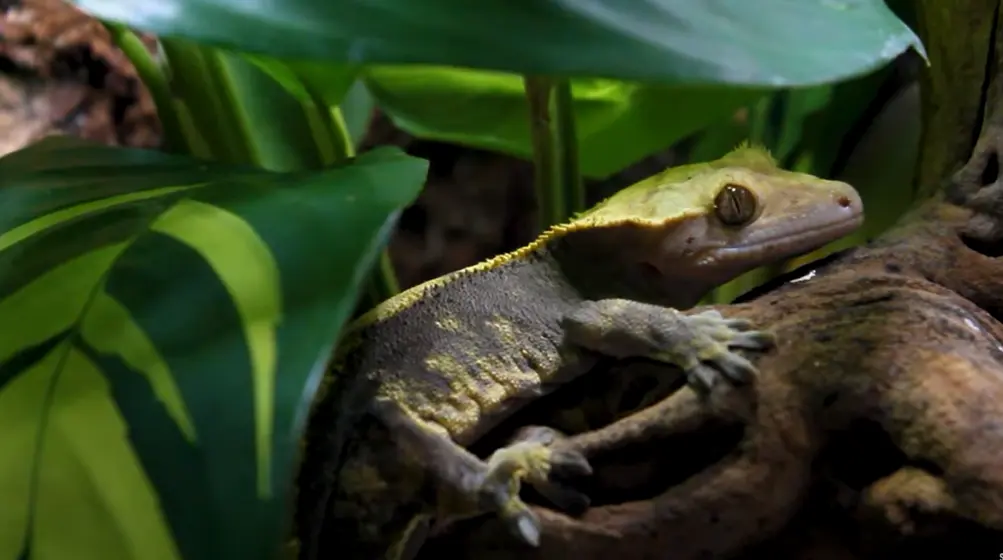
The answer to this question is not straightforward.
Some (25%) crested gecko owners and breeders claim that UVB light is not necessary for crested geckos, as long as you feed them a balanced diet that contains vitamin D3 and calcium supplements.
As per their thoughts,
“Crested geckos get enough vitamin D3 from their food and UVB light can be harmful to their eyes and skin if used incorrectly.”
On the other hand, the majority (75%) of other Crested Gecko owners and breeders strongly recommend using UVB light and think it’s really good for the geckos’ health.
They say:
“UVB light helps geckos as it does other reptiles. It helps them regulate their vitamin D3, digest their food better, look more colorful, have a better appetite, and be more active and alert.”
They also mention that Crested Geckos practice “cryptic basking,” which means they expose part of their body to UVB light while hiding under foliage or branches.
This way, they can choose how much UVB light they need depending on their preferences.
Just a quick heads-up: I have two enclosures in my house, and they are both equipped with Zoo Med T8 ReptiSun 5.0 lighting.
How to Provide UVB Light for Crested Geckos
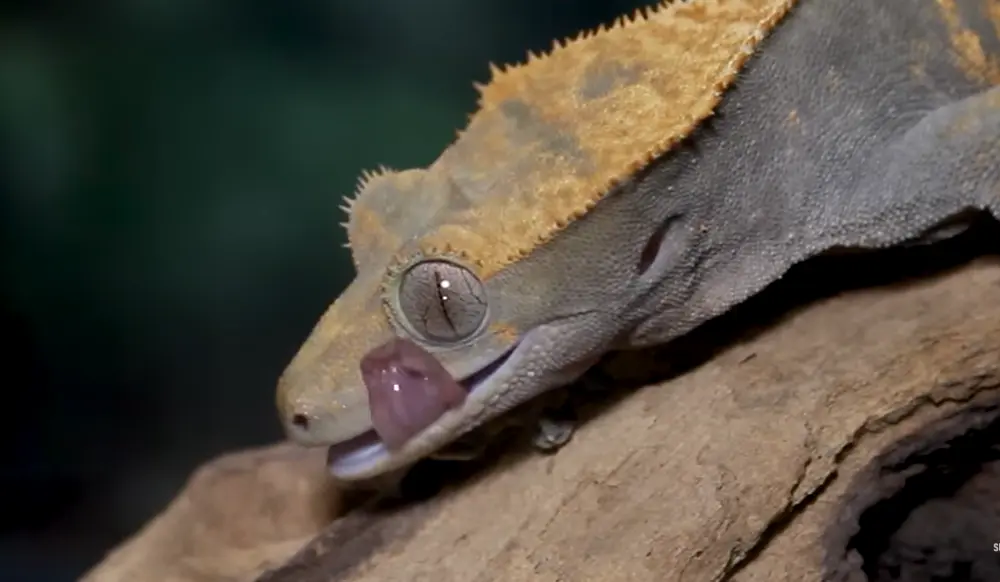
If you decide to use UVB light for your crested gecko, you have to make sure that you do it properly and safely.
Here are some tips on how to provide UVB light for your crested gecko:
1) Choose the right UVB bulb
There are different types of UVB bulbs, like fluorescent tubes, compact fluorescent bulbs, and mercury vapor bulbs.
For crested geckos, go for a low-output UVB bulb, like a 5% or 7% fluorescent tube or a 5% compact fluorescent bulb.
These bulbs emit just the right amount of UVB light for crested geckos.
Avoid high-output UVB bulbs, labeled as 10% or 12%, as they can harm your gecko’s eyes and skin. Also, steer clear of “full spectrum” or “daylight” bulbs, as they don’t provide enough UVB for crested geckos.
2) Create a light gradient and day/night cycle
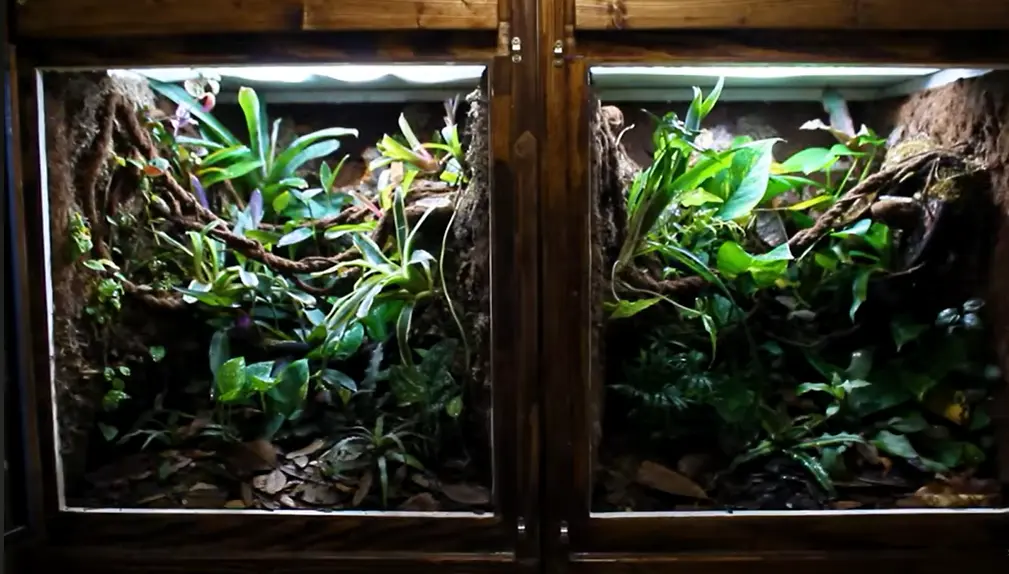
Position the UVB bulb at one end of the enclosure, so there’s a gradient of UVB light from one side to the other.
This allows your gecko to choose how much UVB light it gets.
Use a timer to mimic the natural day/night cycle, giving 10-12 hours of UVB light in spring and summer, and 8-10 hours in autumn and winter.
3) Offer plenty of hiding spots and foliage
Fill the enclosure with plants, branches, vines, and hides so your crested gecko can bask or hide as it pleases.
This allows your gecko to control its UVB exposure.
Make sure these items aren’t too close to the UVB bulb, which could block the light, or too far away, which could prevent enough UVB exposure.
A good rule is to keep them at least 6 inches but no more than 12 inches away from the UVB bulb.
4) Regularly replace the UVB bulb
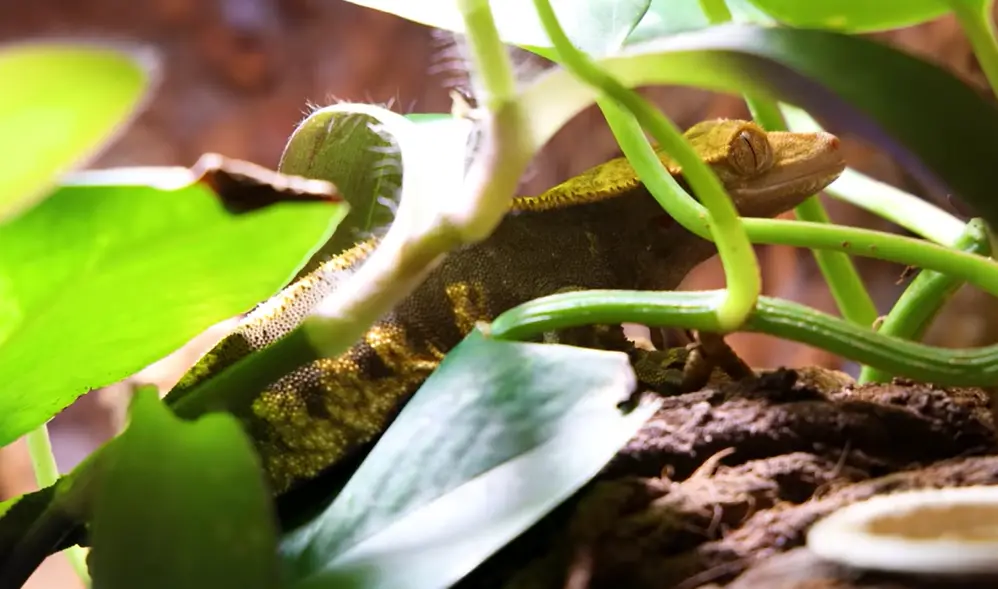
UVB bulbs lose their effectiveness over time and emit less UVB light.
Replace the bulb every 6-12 months, following the manufacturer’s instructions.
Also, monitor your gecko for signs of UVB deficiency or excess, such as lethargy, poor appetite, dull colors, soft bones, or eye/skin issues.
Here’s an info table indicating the pros and cons of UVB light for crested geckos:
| Pros of UVB Light | Cons of UVB Light |
|---|---|
| Supports bone health | Can be expensive |
| Boosts activity | Not always easy to find |
| Enhances coloration | Potential harm if used incorrectly |
| Improves appetite | Risk of harm to the gecko |
| Enhances behavior | Possible vitamin D3 issues |
F.A.Q.s
Q: How do I know if my crested gecko is getting enough UVB light?
You can use a UVB meter to measure the amount of UVB light that your crested gecko is receiving.
You should aim for a UVB index of 1-2 at the basking spot and 0-1 at the hiding spot.
You can also observe the behavior and appearance of your crested gecko, and look

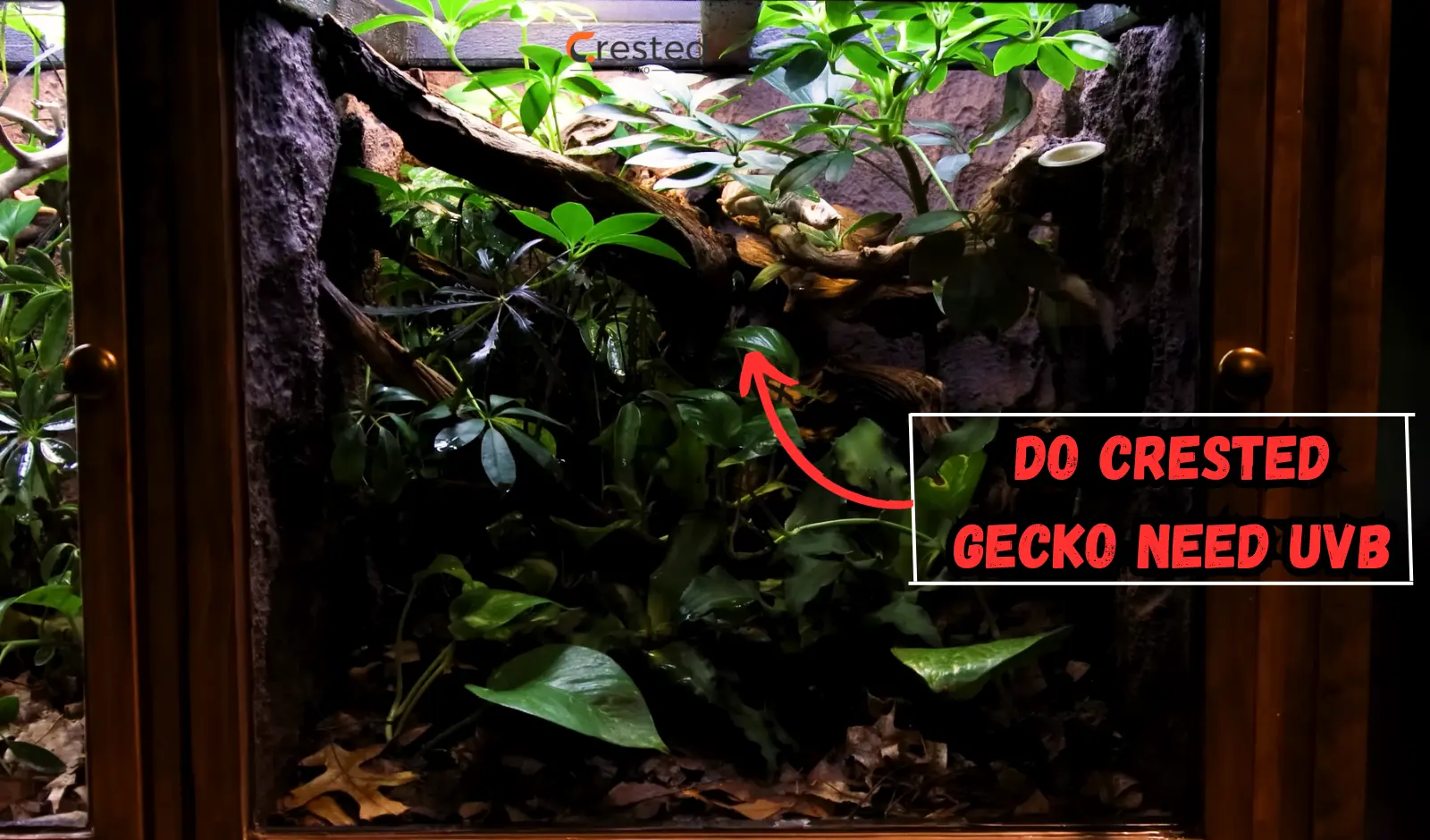
[…] another thing: Crested geckos don’t need UVB lighting because they’re active at night and get their vitamin D3 from their […]
[…] I use a low-wattage UVB bulb for 10 to 12 hours a day to mimic a natural day and night cycle, make their colors pop, and encourage them to fire up more […]
[…] When picking a bulb, go for a quality UVB light. It’s crucial for your crested gecko’s health. […]
[…] of all, Crested Geckos don’t absolutely need UVB light to live, but some studies suggest it can help them stay healthy and act more like they would in the […]